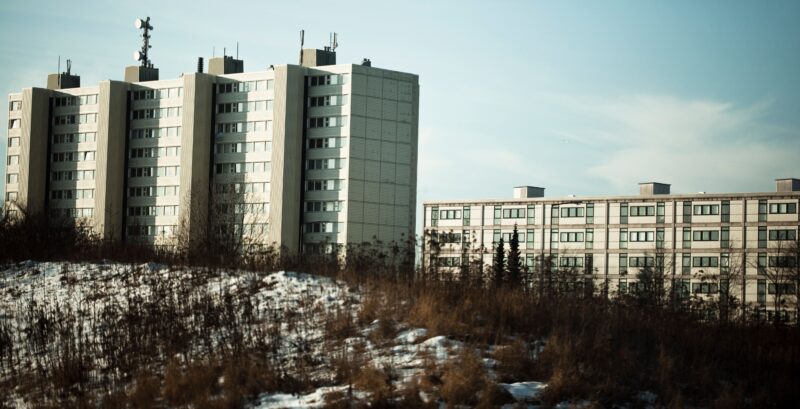Solution provider

Danish Technological Institute (DTI) is an independent and non-profit research and development institute. DTI is approved as an RTO by the Danish Minister of Higher Education and Science.
Case


Danish Technological Institute (DTI) is an independent and non-profit research and development institute. DTI is approved as an RTO by the Danish Minister of Higher Education and Science.
Add the case to your visit request and let us know that you are interested in visiting Denmark
Multistory buildings from the 1960s and 70s make out 30% of the overall floor area and many of them face large renovation needs. Very often, buildings from the 1960s and 70s also deal with low comfort and condensation problems. Furthermore, many renovations end in exceeded budgets and overdue deadlines, due to a fragmented value chain and the absence of incitements to collaborate.
These many challenges create a new market for efficient quality renovations with new procedures, new methods and new products, all based on the latest R&D in construction and management.
REBUS is a widely supported partnership seeking to radically change the renovation process and demonstrate fruitful solutions. It is a societal partnership with the vision to improve the building stock and boost business for the partners, as well as the economy of the building industry. The partners focus on solving the multiple challenges in parallel, but intertwining, processes. REBUS runs from 2016 to 2020 and during that time the partners develop cross-disciplinary solutions built on three foundational pillars:
New ways to collaborate and technical solutions will be demonstrated in full scale with social housing buildings as a case. In close collaboration with building owners, REBUS showcases how the overall goals to reduce energy-consumption with 50%, use of resources with 30% and increase productivity with 20% are reached. Based on development within this segment of the renovation market, REBUS will deliver tested and documented solutions that can be applied in other building types and exported to other markets.
PARTNERS
COWI, Danish Technological Insitute, Frederikshavn Housing Association, Henning Larsen, Himmerland Housing Association, NCC Denmark, Saint-Gobain, Technical University of Denmark, Aalborg University/SBi.
BUDGET AND INVESTORS
The budget is app. DKK 81 million. Hereof The Innovation Fund Denmark invested DKK 35 million, Realdania DKK 8 million and The Landowners Investment Foundation DKK 6 million. The remaining DKK 32 millions are invested by the partners themselves.
FACTS